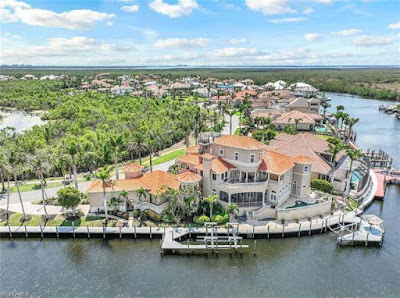Welcome to Cape Coral, Florida, a vibrant city nestled along the beautiful Gulf of Mexico, known for its stunning waterfront properties, Gulf access homes, and rich history. If you're dreaming of a serene and luxurious lifestyle with access to pristine waterways, Cape Coral is the place to be. In this blog post, we'll take you on a journey through the allure of Gulf access homes and uncover some fascinating historical facts that make this city truly special.
Gulf Access Homes: Your Gateway to Waterfront Living
Imagine waking up to breathtaking sunrises over the Gulf of Mexico, the sound of gentle waves, and the aroma of salty sea air. Cape Coral boasts an extensive network of canals, making it a paradise for water lovers. One of the unique features of this city is the vast number of Gulf access homes, offering direct access to the open waters.
Whether you're an avid boater, a fishing enthusiast, or simply love the idea of living on the water, Gulf access homes in Cape Coral offer an unparalleled experience. Picture yourself stepping out onto your private dock, ready to embark on a boating adventure or a relaxing fishing trip at your convenience. These properties not only provide access to the Gulf of Mexico but also connect you to various inland lakes, making it a haven for exploration.
As you explore the real estate options in Cape Coral, you'll find an array of architectural styles, from contemporary waterfront estates to charming coastal cottages. Many of these properties are designed to maximize the waterfront lifestyle, featuring spacious outdoor living areas, infinity pools, and panoramic views. Embrace the tranquil ambiance as you unwind on your lanai, sipping a refreshing beverage while watching dolphins play in the water or pelicans glide gracefully overhead.
A Glimpse into Cape Coral's Past: Historical Facts
Beyond its mesmerizing waterfront properties, Cape Coral holds a captivating history that adds depth and character to the city. Here are some fascinating historical facts that make Cape Coral a truly unique destination:
1. The Visionary Beginnings: Cape Coral was founded in 1957 by two real estate developers, Leonard and Jack Rosen, who saw the potential of this pristine land. They envisioned a paradise with an extensive canal system that would transform the area into a waterfront wonderland, attracting individuals seeking an idyllic lifestyle.
2. Land of Palms: In its early days, Cape Coral was known as the "Land of Palms" due to the abundance of palm trees that adorned the landscape. Today, the city still embraces its lush greenery, adding to its tropical charm.
3. The First Ten Residents: Cape Coral's first ten residents were so enamored by the beauty of the place that they decided to make it their home even before the city was officially incorporated.
4. Population Boom: Cape Coral experienced a significant population boom during the 1960s and 1970s, attracting individuals from all over the country to its sunny shores.
5. Waterfront Wonderland: With over 400 miles of navigable canals, Cape Coral boasts the title of having one of the largest canal systems in the world, surpassing even Venice, Italy.
6. Eclectic Art Scene: Cape Coral is not only a haven for water enthusiasts but also a hub for artists and art enthusiasts. The city hosts various art festivals, galleries, and cultural events throughout the year, fostering a vibrant arts community.
7. The Rose Garden: One of the city's hidden gems is the popular "Rose Garden," a public park known for its stunning rose bushes and a serene waterfront view.
Cape Coral, Florida, is a hidden gem offering the perfect blend of Gulf access homes and captivating history. Embrace the coastal lifestyle as you indulge in waterfront living, exploring the vast canal network and soaking in the awe-inspiring Gulf views. Delve into the city's past to appreciate its visionary beginnings and the resilient spirit that shaped it into the charming paradise it is today.
If you're seeking a place where you can savor the best of both worlds - a luxurious waterfront lifestyle and a rich historical backdrop - look no further than Cape Coral. Get in touch with Jenn Gregory at (239)383-3800 to explore the available properties and embark on a journey to discover your own piece of paradise in Cape Coral, Florida.











